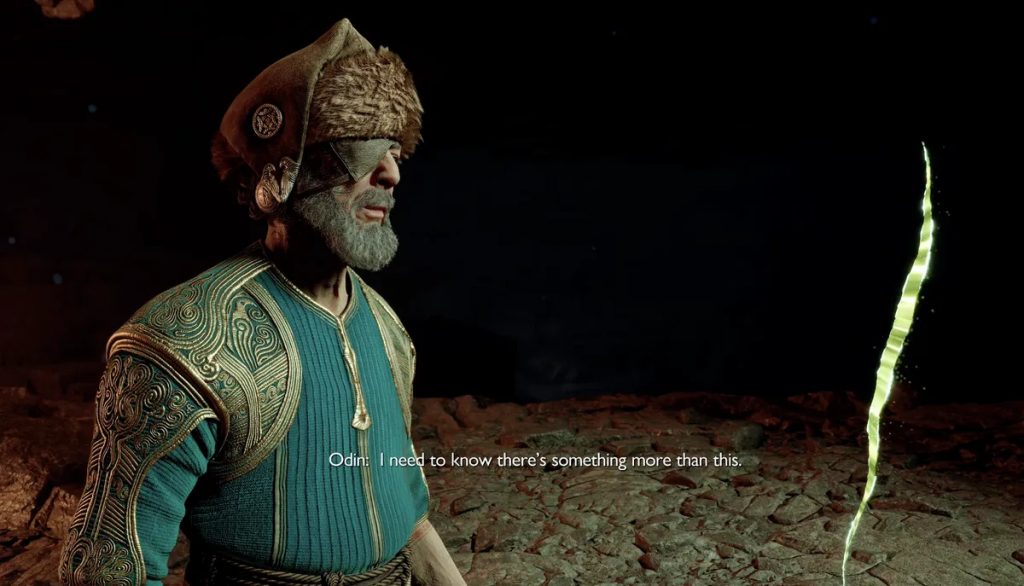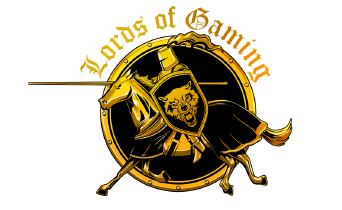Ragnarok is over. Oblivion is averted and all it cost us was a Vanir, a Dwarf, and a few days of our lives. So where does that leave our favorite god slayer? That question is for developer Sony Santa Monica to answer, but I have some of my own regarding BIG points that are left unexplained after we’ve finished traversing Norse mythology’s greatest hits.
Warning – major God of War Ragnarok and God of War 3 spoilers ahead
1: How did Faye die?
This entire journey began in Midgard with the mysterious passing of Kratos’ wife and Atreus’s mother, Faye, and a request for her ashes to be scattered from the highest peak in all the realms. For a death that acts as a catalyst to our story, we are given puzzlingly no explanation as to how it occurred. Was Faye ill? Did she die of natural causes, or was she killed by something, or someone?
One of Ragnarok’s pleasant surprises comes in the form of a massive open area in Vanaheim called The Crater. Here we are given our only insight into Faye’s life before Kratos’s arrival in Midgard and the revelation that her axe met the God of Thunder’s Mjolnir in battle some time ago. This Crater bears witness to their battle, scarring the land and leaving behind the telltale frozen bolt of lightning our encounter with Thor creates at the onset of God of War Ragnarok’s story. Other than this insight and vague tidbits by quest givers strewn about the Crater details are fuzzy.
The encounter as we understand it goes: Faye and Thor were drinking heavily, indicating they knew each other in some capacity prior. They argued, which led to their fight, leaving us with no answer as to a victor. We are told specifically that Thor was incredibly drunk during this affair, likely a nod as to why Faye could stand against him, but why were they arguing? We learn here The Crater was home to the Vanir and when the conflict between them and the Aesir gods grew.
Odin dammed the waters essentially starving the Vanir gods out. Was Faye there in defense of the Vanir? God of War Ragnarok informs us that Faye has the Jotun power of foresight, but doesn’t explain how she intended to use this to her advantage, here or in the long term. Faye chose to isolate herself after this, where she met Kratos, according to the prophecy. If Faye was mortally wounded during her confrontation with the God of Thunder wouldn’t this have been brought up at some point?
As I covered in my previous critique of the game, we lack the necessary reason and motivation to be in conflict with Thor and this would surely have given us more than a reason to hate him, killing two birds with one narrative stone.

“Thor is the giant killer; his rage at the behest of Odin laid waste to most of Jotunheim and killing Faye would have been just another notch on his girthy belt. Thor is not responsible for the death of Faye, so then what is?”
Verdict? Doubtful. If Faye did die as a result of hypothetical injuries to Thor, Sony Santa Monica’s writing team had no reason to keep it secret as it would only serve to add to the narrative. The ONLY reason I can see for it being intentionally omitted is that it would have pushed Kratos and Atreus’s entire “We Must Be Better” mindset to the brink as it’s difficult to imagine Kratos not reverting to his old self with the killer of his wife running free for years.
Thor is the giant killer; his rage at the behest of Odin laid waste to most of Jotunheim and killing Faye would have been just another notch on his girthy belt. Thor is not responsible for the death of Faye, so then what is? We may never know, a truly frustrating capstone as Faye continued to be a driving force in God of War Ragnarok for both her husband and son. Sony Santa Monica should have answered this question; it matters.

2: Kratos is never made to confront his past or face the fallout from God of War 3
One of the most alluring teases from God of War 2018’s Norse reimagining is that this is the same Kratos from the six Greek-focused games. It’s also made clear that Mimir, the Norse god of Knowledge and Wisdom, along with Tyr, their own God of War, knew of him prior to Kratos’s arrival. We’re told our god killer arrived in these Norse lands after wandering north for an untold amount of time, but are given frighteningly little detail aside from this. Furthermore, Kratos is haunted by figures from his past, whether real or imagined, multiple times throughout 2018’s offering.
During the iconic boat trip back to our cabin to retrieve Kratos’s Blades of Chaos, Athena is with us for much of it. As we escape from Helheim Kratos’s father Zeus, whom we killed, appears to admonish us. We may never know, but these appearances do not seem imaginable. Atreus admits he is able to see Zeus in Helheim and is shown his father killing Zeus; more importantly, we know that Athena is still alive. In the aforementioned game’s conclusion, we are led to believe more revelations about Kratos’s journey North and details of what happened after we seemingly destroyed all of Greece would be forthcoming. Surprisingly, this is never touched on again in Ragnarok and Kratos’s entire past is swept under the rug during the Norse Saga’s conclusion.
There are several differences in vision and perplexing narrative elements between the two games (notably the omnipresence of Jormungandr from 2018), but the omission of Kratos’s Greek past and his ability to confront this is where the change in directors from Cory Barlog to Eric Williams leading GOW Ragnarok is most noticeable. After that initial tantalizing glimpse, Kratos is never made to reconcile his actions from previous games, which makes his quest for redemption ring hollow.

Greece is left in an apocalyptic state after Kratos lays waste to every major god residing on Mount Olympus, after which our God of War commits suicide by plunging the Blade of Olympus into his chest. In doing so, Kratos’s final act in Greece is one of good as the power Athena coveted, one of Hope, is given back to the remaining populace of Greece, seemingly to begin anew. Clearly, Kratos didn’t die at the end of God of War 3, but neither did the lone Greek goddess left, Athena.
At the end of the Greek saga, Athena is still alive and Kratos is allowed to leave unabated but how? How did Kratos survive impaling himself while all but abandoned on Mount Olympus, bleeding out? What state was Greece left in after the events of God of War 3 as Kratos sought to find himself on a journey North? In addition, what of the remaining Titans that fought alongside Kratos during his warpath through Olympus? Kratos turned on Gaia, savagely murdered Cronos, and killed another Titan as he ascended from the mountain depths. I’m sure they aren’t exactly happy with their former ally, even with the Greek gods now dead. What did Kratos learn after all this destruction, aside from his revenge leading to apocalyptically bad things? Finally, Kratos was married before. He had a child that died; isn’t that something he may have shared with his new beau, Faye? What about Atreus/Loki — would he not be interested to know he had a stepsibling, one who Kratos killed? Again, we are frustratingly left in the cold without answers to gaping voids that should have at least been touched on. “Be Better” was a vague mantra all throughout God of War Ragnarok, indeed writers at Sony Santa Monica. You left a rich history that is integral in relation to Kratos and how he grew from those experiences, all of which are still unexplained. Bravo.
3: What’s behind the tear in reality that Odin sought to unlock with the Mask?

This last question is one that could still be cleared up, but with the development team stating they have no plans for DLC in God of War Ragnarok we are left with Odin’s master plan ultimately being a MacGuffin. The entire focus of our main villain during this 40+ hour game is left entirely unexplained after we finish. Don’t we deserve to know what this Tear actually is? Are Kratos, Freya, Atreus, or even Mimir not curious about what could be behind this “thing” that an all-powerful All-Father would be willing to sacrifice everything for?
As I explained in my previous critique covering Thor and Odin’s poorly written arcs and developments, Odin accomplished nothing for all his machinations during God of War Ragnarok. Every plan he sets in motion fails and leaving this “Tear in Reality” Odin so craves devoid of any explanation makes it seem entirely irrelevant in the end. Again, this plot device being left up in the air is perplexing and really does a disservice to Odin as it’s yet another plan that fell flat.

Other minor perspectives are left vague along with other quibbles in the game. But these three omissions hail as HUGE oversights from the writing team during God of War Ragnarok.
Jason’s 2nd of 3 necessary critiques of God of War Ragnarok tackles the answers we should have but don’t after Kratos and Co. saved the 9 realms. Next up is my third and final God of War Ragnarok critique where we’ll really dive into the meat of the game’s pros, cons, and myriad design, UI, and character issues. Specifically, I can’t wait to break down the finale of the game in all its disappointing glory (yes you read that right). Until next time!



